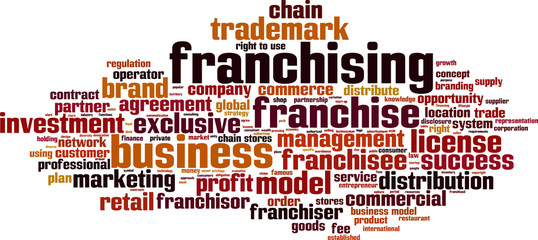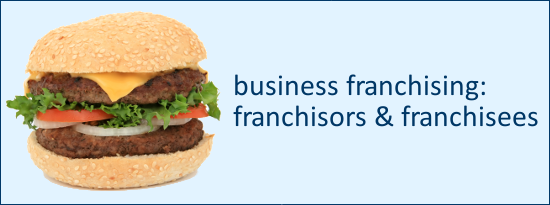Franchise brands: licensing intellectual property: franchise documents advice: breach of franchise disputes: contract termination: misrepresentation
Franchising is a commercial arrangement under which a bundle of intellectual property rights (such as patents, trade marks, trade names, copyrights, designs and know how (owned or claimed to be owned by a franchisor) are licensed for use by a franchisee under terms which require the franchisee to follow exactly the franchisor’s methods of doing business.
A true franchise is a complete business system licensed to the franchisee for a period.
Business format franchising
This is the most common form of franchise arrangement. In short the franchisor grants the franchisee the right to use their business idea in a given area. The franchisee owns the business that they are trading from but operates it under the well-known trade mark or trade name of the franchisor, so that to the outside world it appears as though the business is the franchisor. McDonald’s and Body Shop are classic examples of this franchising method. The brand associated with a franchise is usually promoted heavily through advertising so that a new franchise business can expect a steady footfall of customers from the get go.
In addition to the brand of the franchise, the franchisee will often benefit from the help and support of the franchisor who will likely be able to exert substantial influence and control over the conduct of the business. This is to protect the brand equity in the franchise (so that the reputation of the McDonald’s brand is not harmed by the conduct of a low calibre restaurateur, for example). It is this level of control that can make the use of franchising more appealing for a franchisor than looser general brand licensing arrangements. In return for using the franchise the franchisee can expect to pay an initial set-up fee followed by a percentage of its revenue to the franchisor.
Often the franchise concept has been refined over a period of years by the franchisor in a pilot franchise operation. This involves the franchisor running the business from one or more outlets as if it were a franchise and ‘ironing out’ the difficulties that arise in relation to matters ranging from marketing and shop layout to the selection of staff in the process. This means that when it comes to franchising the business the owner often has a proven concept and brand to offer.
Franchising agreements
An appropriately drafted franchising agreement is essential to govern the relationship between franchisor and franchisee effectively. The agreement itself is not required to comply with any specific legal regulation (which is somewhat surprising given the increasing importance of franchising to the UK economy). There is however a non-binding European Code of Ethics for Franchising. This has been adopted by the British Franchise Association and it is prudent to ensure compliance with this in any franchising agreement.
The precise content of the agreement will depend upon the nature of the franchising arrangement and specific terms need to be reviewed in detail. Typical clauses might include:
- Length of the franchising agreement and option to renew
- Franchising territory and restrictions on selling and marketing in other territories
- Fees payable by the franchisee
- Conduct of the franchise business
- Intellectual property licensing and brand protection
- Obligations on the franchisor such as providing training and stock
- Restrictions on the layout of the franchise premises.






